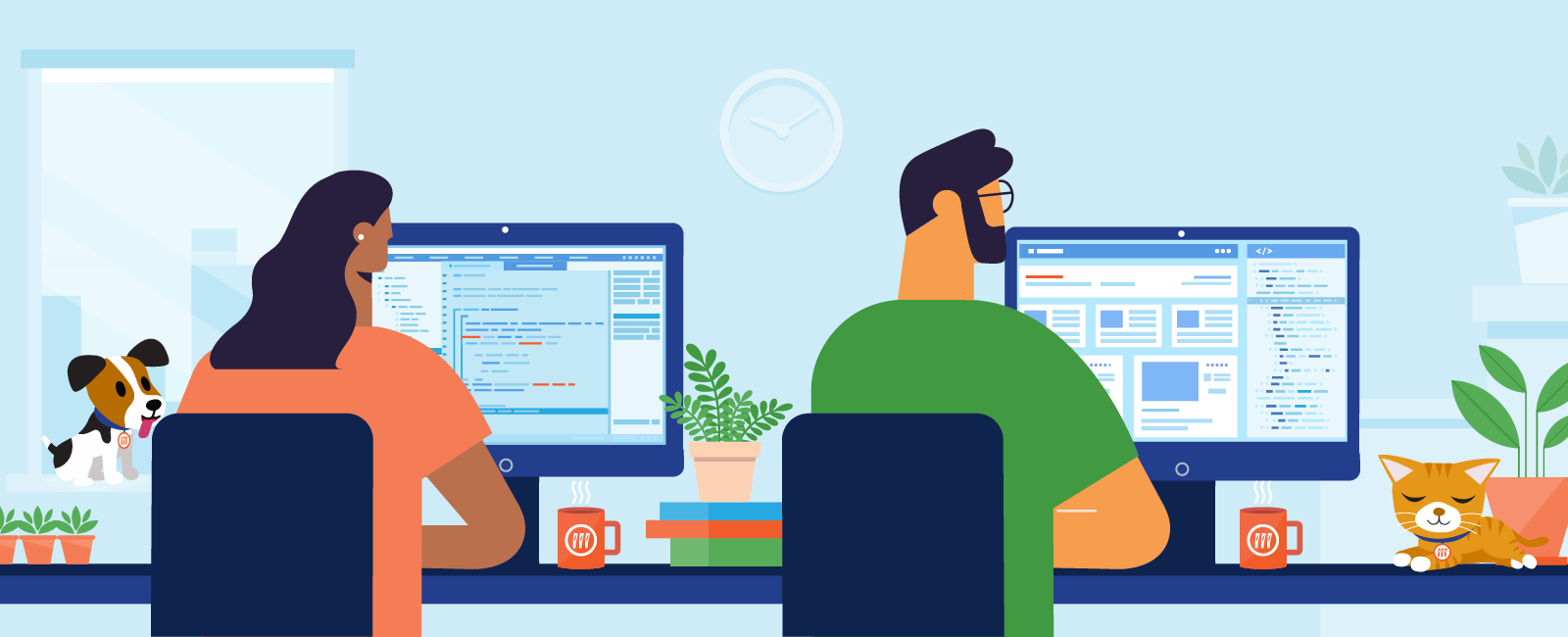
Software Engineers – the masterminds behind many of the applications, games, and tools we use today and one of the top 10 roles we hire at Segue. Their role is to apply the principles of software engineering to design, develop, maintain, test, and evaluate computer software. In general, they troubleshoot issues, test the system, run codes, interact with coworkers and customers, pay close attention to detail, and suggest system improvements. They work from home and/or on-site, in small and/or large groups. At Segue, you can find them at different levels: intern, entry-level, middle level, senior, and lead. Each of them with different responsibilities but the same goal: to design software to help solve the problems our customers face. If you are interested in learning more about Segue’s Software Development work and services, visit Segue’s Agile Development Service page.
So, What Does a Software Engineer Actually Do?
Before we dive into a day in the life of a Software Engineer, we would like to mention that this job varies day-to-day and that every company/project has its own culture, required skills, and job duties. At Segue, a general day in the life of a Software Engineer will be something like this:
Morning
Afternoon
Skills and Competencies of a Software Engineer
For a Software Engineer, coding is the main skill to learn and the main focus of the role. A Software Engineer starts the day coding and will most of the time end the day coding. Additional skills required for this role are:
- Troubleshooting, testing, and database development/architecture
- Java, JavaScript, C#, C++, HTML, Python, Visual Basic, Object-oriented programming, SQL, PL/SQL, and .NET
When considering soft skills, communication, teamwork and collaboration, problem-solving, multitasking and time management, critical thinking, and attention to detail are fundamental for this role at any level.
What’s It Like to Be a Software Engineer?
An Interview with Todd Godbout, Senior Software Engineer at Segue Technologies Inc.
If you are interested in joining our team or explore our career opportunities visit Segue’s career page or share your resume with our Recruitment team at [email protected] To find more information about our team members go to Segue’s Blog: Employee Spotlight.